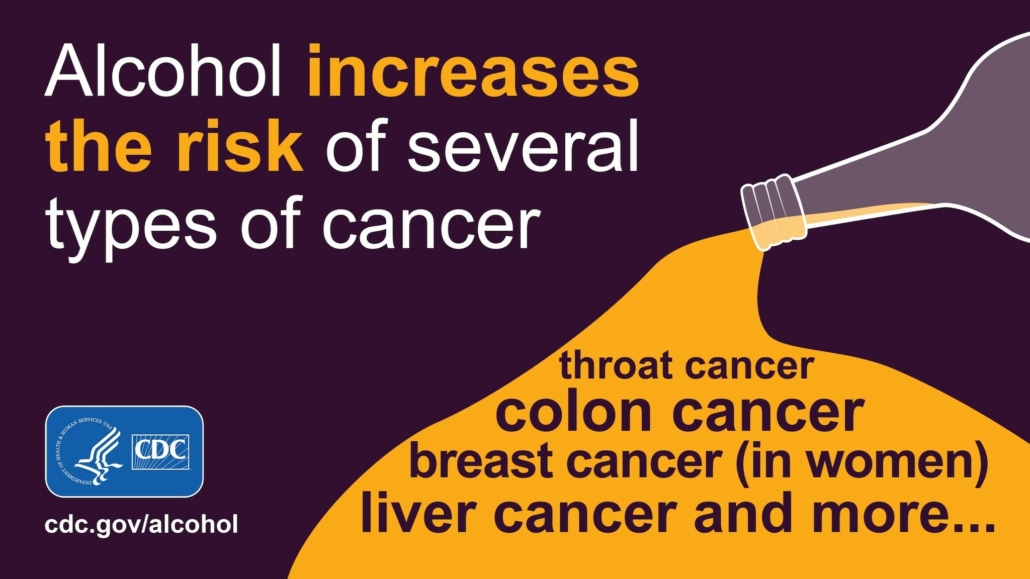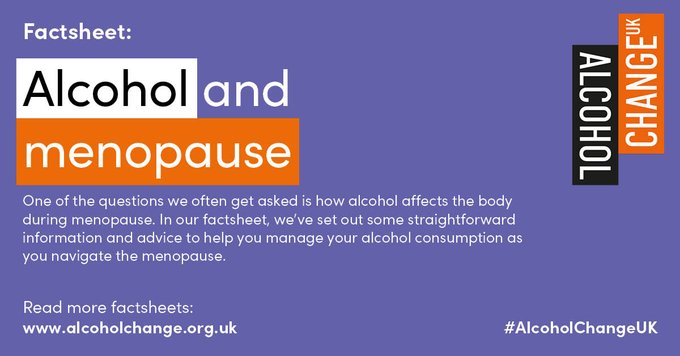“Drinking too much alcohol can impact menopause by:
contributing to unwanted weight gain, interfering with sleep
causing changes in your mood which may affect…”.1
Umbrella
What may the Alcohol and Menopause Umbrella include?
Depending on the Source (DotS) this Umbrella may include:
- Alcohol
- Booze
- Drug
- Grog
- Liquor
- Menopause
Benefits and Risks
Is alcohol good for you or not?
In Alcohol Use: Weighing Risks and Benefits the (United States) Mayo Clinic explain:
Menopause
How can drinking too much alcohol impact menopause?
In Looking After Yourself: Alcohol the (Australian) Jean Hailes for Women’s Health (JH) explain:
 “Drinking too much alcohol can impact menopause by:
“Drinking too much alcohol can impact menopause by:
- Contributing to unwanted weight gain
- Interfering with sleep
- Causing changes in your mood which may affect your relationships
- Triggering hot flushes and night sweats
In the long term, heavy drinking can also lead to an increased risk for developing some cancers, depression, cardiovascular disease, diabetes and poor bone health”.3
Cancer
Is there an association between alcohol and cancer?
In Alcohol and Cancer: Alcohol and Cancer (United Kingdom) Drinkaware.co.uk note:
- Breast cancer
- Bowel cancer
- Mouth cancer
- Food pipe (oesophageal) cancer
- Upper throat (pharyngeal) cancer
- Voice box (laryngeal) cancer
- Liver cancer
Heavy drinking can also cause cirrhosis of the liver (where damage to the liver causes scar tissues to build up) which can then lead to cancer”.4
Breast Cancer
Is there an association between alcohol and breast cancer?
The JH explain:
In Alcohol: What Is High-Risk Drinking? Drinking In Midlife the JH also note:
Alcohol + Smoking
Is there an association between alcohol + smoking and a greater risk of cancer?
In Alcohol and Cancer: Drinking and Smoking Combined Lead To A Greater Risk of Some Cancers Drinkaware.co.uk explain:
People who use both alcohol and tobacco have a five-fold increased risk of developing cancers of the mouth, throat, voice box and food pipe compared to people who use either alcohol or tobacco alone. For heavy users, the risk is up to 30 times higher”.7
Osteoporosis
Is there an association between alcohol and osteoporosis?
In Osteoporosis: Symptoms & Causes – Risk Factors: Lifestyle Choices the Mayo Clinic elaborate on:
Women and Alcohol
If women choose to drink alcohol, what does moderate drinking mean?
DotS and/or DotC (Depending on the Country) this may vary. For the United States in Alcohol Use: Alcohol Use and Your Health – Understanding Alcohol Use: Moderate Alcohol Use the Centers for Disease Control and Prevention note:
For the United Kingdom in UK Low Risk Drinking Guidelines: Weekly Guidelines the Drinkaware.co.uk elaborate on:
- To keep health risks from alcohol to a low level it’s safest not to drink more than 14 units a week on a regular basis
- If you regularly drink as much as 14 units per week, it’s best to spread your drinking over three or more days. If you have one or two heavy drinking episodes a week, you increase your risk of death from long-term illness and from accidents and injuries
- The risk of developing a range of health problems (including cancers of the mouth, throat and breast) increases the more you drink on a regular basis
- If you wish to cut down the amount you drink, a good way to help achieve this is to have several drink-free days every week”.10
High-Risk Drinking
What are the health effects of high-risk drinking?
According to the JH:
Health Care Provider
What if I would like to drink, drink less or stop drinking?
If you would like to drink, drink less or stop drinking, it may be in your best interest to choose to talk to your health care provider about this.
In Alcohol: Weighing Risks and Potential Benefit – Deciding About Drinking the Mayo Clinic note:
The JH explain:
Health Topics A-Z
Where may I find Health Topics A-Z related to Alcohol and Menopause?
In Health Topics A-Z you may find:
Links
Where may I find Links related to Alcohol and Menopause?
Your Country may have Links similar to:
Links
This Links List to third party websites is neither comprehensive nor exhaustive. Inclusion on this Links List does not imply endorsement or recommendation. Non-inclusion on this Links List does not imply non-endorsement or non-recommendation. Third party websites are not under the control of Meno Martha International Menopause Directory. Third party websites may contain explicit medical images and/or sexual references. Please read Meno Martha International Menopause Directory’s Links Policy before proceeding to a Link. Please contact Webmaster if you experience a problem with a Link.New or Updated
- 8 Top Tips for Healthier Drinking and Happier Relationships
- A.A. Around the World [Alcoholics Anonymous]
- About Alcohol Awareness Week [1-7 July 2024, United Kingdom]

- Al-Anon Family Groups
- Alcohol
- Alcohol
- Alcohol
- Alcohol Calorie Calculator
- Alcohol Free and Low Alcohol Drinks
- Alcohol Misuse
- Alcohol Raises Heart Disease Risk, Particularly Among Women
- Alcohol Spending Calculator
- Alcohol Units
- Alcohol Use Disorder
 Alcohol Use
Alcohol Use- Alcohol Use: About Standard Drink Sizes
- Alcohol Use: Alcohol Use and Your Health
- Alcohol Use: Drinking Alcohol While Using Other Drugs Can Be Deadly
- Alcohol Use: Effects of Mixing Alcohol and Caffeine
- Alcohol Use: Weighing Risks and Benefits
- Alcohol and Breast Cancer
- Alcohol and Calories
- Alcohol and Cancer
- Alcohol and Cancer
- Alcohol and Diabetes
- Alcohol and Diabetes
- Alcohol and Fitness
- Alcohol and Heart Disease
- Alcohol and Menopause

- Alcohol and Menopause: What Are the Risks? [+ Video]
- Alcohol and Mental Health
- Alcohol and Prescription Medication
- Alcohol and Sex
- Alcohol and Stress [+ Video: Dr Sarah Jarvis Discusses How Alcohol Can Affect Mental Health]
- Alcohol and Women
- Alcohol and Your Body
- Alcohol and the Heart
- Alcohol and the Liver
- Alcohol, Calories and Maintaining A Healthy Weight
- Alcohol-Free Drinks
- Alcoholchange.org.uk [Alcohol Change UK]
- Alcoholic Drinks and Units
- Alcohol’s Health Effects: What You Need To Know
- Anxiety and Alcohol: Does Drinking Worsen Symptoms?
- Are You Addicted To Alcohol?
- Are You Drinking Too Much?
- Cocktail Content Calculator
- Consumer Video and Podcast Series: 2023 Consumer Videos and Podcasts – Lifestyle Modification and Prevention of Breast Cancer
- Consumer Video and Podcast Series: 2024 Consumer Videos and Podcasts – Preparing for Your Menopause Healthcare Visit
- Does Alcohol Make You Argue With Your Partner?
- Drink Less, Be Your Best
- Drink-Refusal Skills: How To Say No To An Alcoholic Drink
- Drinkaware.co.uk [Drinkaware, United Kingdom]
- Drinkwise.org.au [DrinkWise, Australia]
- Dry January
- Excessive Alcohol Use Is A Risk To Women’s Health
- Framingham Heart Study
- Here’s Why Day Drinking Feels Different
- Hellosundaymorning.org [Hello Sunday Morning]
- How Alcohol Affects Relationships
- How Alcohol Affects Your Appearance
- How Alcohol Affects Your Body
- How Alcohol Affects Your Brain | Akhil Anand, MD [Video]
- How Alcohol Affects Your Heart
- How Is Your Drinking Affecting You?
- How Long Does It Take Your Liver to Detox From Alcohol?
- How To Cut Down on Alcohol At Home
- How To Reduce Your Drinking
- Is A.A. for You? [Alcoholics Anonymous]
- Is Alcohol Affecting Your Sex Life?
- Later Years (Around 50 Years and Over): Menopause and Post Menopause Health – Menopause and Your Mental Wellbeing [+ Video: Menopause Only Affects You Physically!] [Other Languages and Formats]
- Limit Alcohol Consumption
- Low Alcohol Drinks
- Mastering Midlife Mood Changes With Marlene Freeman, MD
- Mayo Clinic Minute: Why Alcohol and Menopause Can Be A Dangerous Mix [+ Video Courtesy: Mayo Clinic News Network]
- Menopause
- Menopause Map: Downloadable Resources – My Personal Path Print Tools: Symptom Tracker
- Menopause Patient Information [Videos] 5. Lifestyle Advice In Menopause & Perimenopause
- Menopause Preparedness Toolkit Video Series: Lifestyle Tips for Menopause Wellness
- Menopause Preparedness Toolkit: A Woman’s Empowerment Guide
- Menopause: Things You Can Do
- Menopause: Understanding the Changes and Finding Relief | Dr Susan Davis | The Proof Podcast EP 256
- National Institute on Alcohol Abuse and Alcoholism [United States]
- Navigating Menopause: Honest Answers To All Your Questions [+ Video: What To Expect in Menopause]
- Perimenopause and Menopause Symptom Checklist

- Rethinkingdrinking.niaaa.nih.gov [Rethinking Drinking]
- Samhsa.gov [Substance Abuse and Mental Health Services Administration, United States]
- Supporting A Loved One Through Menopause
- The Risks of Drinking Too Much
- The Role Alcohol Plays In New Cancer Cases – Landmark New Report
- Tips To Help Manage Menopause Symptoms
- Tips for Cutting Down
- Tips on Cutting Down
- Unit & Calorie Calculator
- Videos and Podcasts: Videos – Interviews: A Simple Approach To Menopause: The Menopause Quick Six (www.MQ6.ca)
- Webinars: Previous – Approach To Bone Health In the Perimenopause and Postmenopause?
- What Does Alcohol Do To Your Body? 9 Ways Alcohol Affects Your Health
- What Is An Alcohol Unit?
- What Is Menopause? [+ Video]
- Why You Should Avoid Alcohol on Antibiotics
Sources
Where may I find the Sources quoted?
You may find the Sources quoted at:
Sources
- Looking After Yourself: Alcohol. Last Updated: 19 January 2024 | Last Reviewed: 19 August 2022. Jean Hailes for Women’s Health https://www.jeanhailes.org.au/health-a-z/menopause/looking-after-yourself#alcohol Accessed: 04 July 2024
- Alcohol Use: Weighing Risks and Benefits. 21 June 2024. Mayo Clinic https://www.mayoclinic.org/healthy-lifestyle/nutrition-and-healthy-eating/in-depth/alcohol/art-20044551 Accessed: 04 July 2024
- Looking After Yourself: Alcohol. Last Updated: 19 January 2024 | Last Reviewed: 19 August 2022. Jean Hailes for Women’s Health https://www.jeanhailes.org.au/health-a-z/menopause/looking-after-yourself#alcohol Accessed: 04 July 2024
- Alcohol and Cancer: Alcohol and Cancer. Last Reviewed: 27 January 2022. Drinkaware.co.uk https://www.drinkaware.co.uk/check-the-facts/health-effects-of-alcohol/effects-on-the-body/alcohol-and-cancer Accessed: 04 July 2024
- Alcohol: What Is High-Risk Drinking? Health Effects of High-Risk Drinking. Last Updated: 12 February 2024 | Last Reviewed: 23 January 2024. Jean Hailes for Women’s Health https://jeanhailes.org.au/health-a-z/healthy-living/alcohol Accessed: 04 July 2024
- Alcohol: What Is High-Risk Drinking? Drinking In Midlife. Last Updated: 12 February 2024 | Last Reviewed: 23 January 2024. Jean Hailes for Women’s Health https://jeanhailes.org.au/health-a-z/healthy-living/alcohol Accessed: 04 July 2024
- Alcohol and Cancer: Drinking and Smoking Combined Lead To A Greater Risk of Some Cancers. Last Reviewed: 27 January 2022. Drinkaware.co.uk https://www.drinkaware.co.uk/check-the-facts/health-effects-of-alcohol/effects-on-the-body/alcohol-and-cancer Accessed: 04 July 2024
- Osteoporosis: Symptoms & Causes – Risk Factors: Lifestyle Choices. 24 February 2024. Mayo Clinic https://www.mayoclinic.org/diseases-conditions/osteoporosis/symptoms-causes/syc-20351968 Accessed: 04 July 2024
- Alcohol Use: Alcohol Use and Your Health – Understanding Alcohol Use: Moderate Alcohol Use. 15 May 2024. Centers for Disease Control and Prevention https://www.cdc.gov/alcohol/about-alcohol-use/ Accessed: 04 July 2024
- UK Low Risk Drinking Guidelines: Weekly Guidelines. Last Reviewed: 30 June 2022. Drinkaware.co.uk https://www.drinkaware.co.uk/facts/information-about-alcohol/alcohol-and-the-facts/low-risk-drinking-guidelines Accessed: 04 July 2024
- Alcohol: What Is High Risk Drinking? Health Effects of High-Risk Drinking. Last Updated: 12 February 2024 | Last Reviewed: 23 January 2024. Jean Hailes https://jeanhailes.org.au/health-a-z/healthy-living/alcohol Accessed: 04 July 2024
- Alcohol: Weighing Risks and Potential Benefits – Deciding About Drinking. 21 June 2024. Mayo Clinic https://www.mayoclinic.org/healthy-lifestyle/nutrition-and-healthy-eating/in-depth/alcohol/art-20044551 Accessed: 04 July 2024
- Alcohol: Where To Get Help. Last Updated: 12 February 2024 | Last Reviewed: 23 January 2024. Jean Hailes for Women’s Health https://jeanhailes.org.au/health-a-z/healthy-living/alcohol Accessed: 04 July 2024



